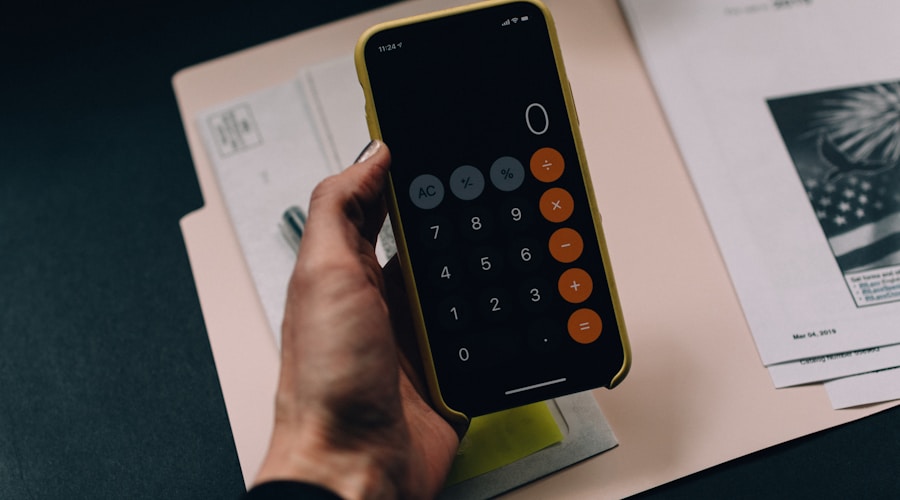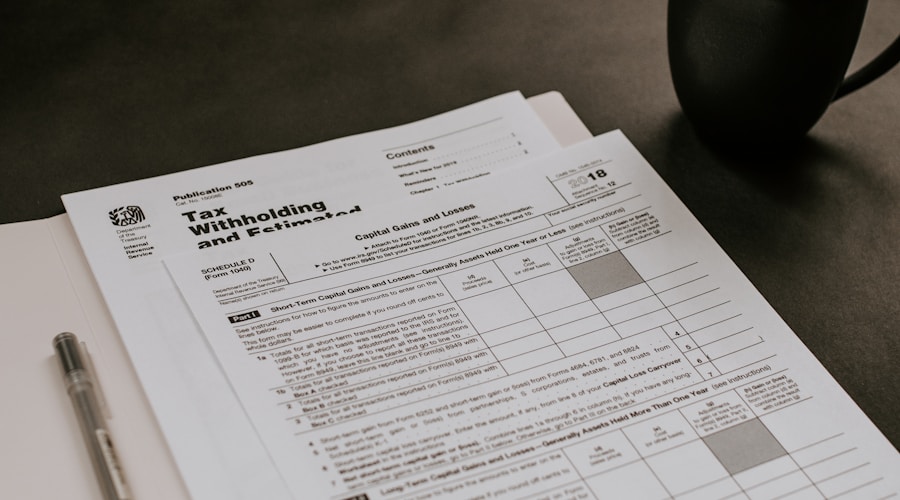Welcome to the world of freelancing! As a self-employed individual, you have the freedom to choose your own clients, set your own hours, and work from virtually anywhere. However, along with this freedom comes the responsibility of managing your finances effectively.
Handling money as a freelancer can be challenging, but with the right knowledge and approach, you can set yourself up for long-term financial success. Whether you're just starting out or have been freelancing for a while, this guide will provide you with valuable insights and practical tips to help you navigate the financial aspects of freelancing.
From understanding your income and planning your budget to dealing with taxes and investing in your business, we'll cover a wide range of topics to empower you to take control of your financial well-being. So, grab a cup of coffee, get comfortable, and let's dive into the world of freelancing and finance. You've got this!
Understanding Your Income as a Freelancer
As a self-employed individual, it's crucial to have a clear understanding of your income. Unlike traditional employees who receive a paycheck every two weeks, your earnings as a freelancer can be irregular and unpredictable. It's important to recognize that "Freelancing can be financially rewarding, but it requires careful planning and management of your income," says a financial advisor.
When it comes to calculating your income, it's essential to take into account not only the payments you receive but also any business expenses you incur. You should calculate your net income by subtracting your business expenses from your total earnings. This will give you a more accurate picture of your actual income.
Also, remember that as a freelancer, you're responsible for managing your own taxes. Unlike employees who have taxes withheld from their paychecks, you must set aside a portion of your income for taxes. According to the book "The Freelancer's Bible," "It's important to set aside around 30% of your earnings for taxes." By understanding how your income is generated and how taxes should be handled, you can avoid financial stress down the road.
Finally, it's crucial to keep track of your income streams. Diversifying your income sources is a great way to protect yourself from financial instability. This means keeping records of all your income sources, whether it's from client projects, online courses, or affiliate marketing. By understanding the different sources of your income, you can ensure a more stable financial foundation.
Planning Your Budget Wisely
When you're a freelancer, budgeting isn't just important - it's absolutely crucial. Without a steady paycheck, it's up to you to make sure your income covers all your expenses, both personal and professional. Here are some tips to help you plan your budget wisely and keep your finances on track.
Track Your Expenses: Start by keeping a detailed record of all your expenses. This will give you a clear picture of where your money is going and help you identify areas where you can cut back if needed.
Create a Realistic Budget: Take into account both your regular monthly expenses and any irregular ones. It's important to be realistic about your income and expenses, so you can avoid overestimating what you'll make and underestimating what you'll spend.
Set Aside Emergency Funds: As a freelancer, having an emergency fund is essential. Without the safety net of a regular paycheck, you need to prepare for the unexpected. Financial expert Suze Orman advises, "You must plan for the unexpected. Whether you’re a freelancer or not, having money set aside for an emergency is crucial to your financial stability".
Consider Your Business Expenses: In addition to personal expenses, don't forget to budget for your business costs, such as software subscriptions, marketing materials, and professional development. These are just as important as your personal expenses and need to be factored into your budget.
Review and Adjust Regularly: Your budget shouldn't be set in stone. As your income and expenses fluctuate, make sure to review and adjust your budget regularly. This will help you stay on top of your finances and make any necessary changes as your freelance business grows.
By planning your budget wisely, you can give yourself a greater sense of financial security and peace of mind as a freelancer.

Saving for the Future: Tips for Freelancers
When you're self-employed, it's crucial to think about saving for the future. You don't have the luxury of a company-sponsored retirement plan, so it's up to you to make sure you have enough set aside for the years ahead. Here are some tips to help you save for the future:
Set up a separate retirement account: Consider opening a solo 401(k) or a Simplified Employee Pension (SEP) IRA. This allows you to save for retirement and may provide some tax benefits as well.
Automate your savings: Set up automatic transfers from your business account to your savings or retirement account. This can help you save consistently without having to think about it.
Think long-term: "Being a freelancer means no steady paycheck, but it also means you have the potential to earn more money in the long run. It's important to save and invest for your future," advises personal finance expert Suze Orman.
Invest in a diversified portfolio: Speak to a financial advisor about creating an investment portfolio that aligns with your long-term goals and risk tolerance. Diversifying your investments can help protect your savings from market fluctuations.
Remember, as a freelancer, you don't have an employer looking out for your financial future. It's up to you to take the necessary steps to prepare for retirement and other long-term financial goals.
Dealing with Taxes: A Simple Guide
When you're self-employed, handling taxes can be a bit more complicated compared to when you're working for an employer. It's essential to understand the tax obligations and responsibilities that come with freelancing.
First and foremost, make sure to set aside a portion of your income for taxes. As a freelancer, you don't have an employer withholding taxes from your pay, so it's up to you to make estimated tax payments throughout the year. Failure to do so can result in penalties and interest charges.
Keeping accurate records is crucial when it comes to taxes. This can include invoices, receipts, and any other financial documentation related to your freelance work. By maintaining organized records, you'll be better prepared when it's time to file your taxes.
You may want to consider hiring a qualified tax professional to help you navigate the complexities of self-employment taxes. They can offer valuable insights and ensure that you're taking advantage of all the deductions and credits available to you.
According to tax expert David M. Green, "One of the biggest mistakes freelancers make is not keeping track of their expenses. This can end up costing you a lot in the long run. Make sure you're documenting everything related to your business, from office supplies to travel expenses."
When it comes to filing your taxes, be sure to meet all deadlines and submit accurate information. The IRS provides resources specifically for self-employed individuals, so take advantage of these to ensure you're fulfilling your tax obligations.
By staying on top of your tax responsibilities and seeking professional guidance when needed, you can navigate the world of self-employment taxes with confidence.

Investing in Your Business and Yourself
Investing in your business and yourself is essential for the long-term success of your freelancing career. It's not just about making money now, but also about securing your future and growing your skills and business. Here are some tips to help you make smart investments:
Continuous Learning: As a freelancer, your skills are your most valuable asset. Investing in further education and training can give you a competitive edge. As Warren Buffet said, "The best investment you can make is in yourself."
Technology and Tools: Upgrading your equipment and software can improve your efficiency and the quality of your work. It's a worthwhile investment in the long run.
Marketing and Branding: Spending on marketing and branding can help you reach a wider audience and attract more clients. As entrepreneur Jim Rohn said, "Work harder on yourself than you do on your job."
Retirement and Emergency Funds: Set up a retirement account and an emergency fund. It's important to have a financial safety net, especially as a freelancer with irregular income.
Remember, investing in your business and yourself is not just about spending money; it's about making strategic decisions that will benefit you in the long term. It's about setting yourself up for future success and security.
Managing Irregular Earnings
As a freelancer, managing irregular earnings can be challenging, but it's essential for your financial stability. Here's how you can handle the ups and downs of your income:
Create a Buffer Fund: "When your income fluctuates, having a buffer fund is crucial. Save a portion of each payment you receive to create a financial cushion for yourself," advises financial expert, Suze Orman.
Prioritize Essential Expenses: When you have a windfall, it can be tempting to splurge. However, it's important to prioritize your essential expenses and budget for the long term. Financial coach, Chris Hogan, suggests, "Make sure to cover your necessities first, including your bills, debt payments, and savings, before spending on luxuries".
Diversify Your Income Streams: "To mitigate the impact of irregular earnings, consider diversifying your income streams by offering different services, taking on various projects, or investing in passive income sources," recommends entrepreneur and author, Tony Robbins.
Use Budgeting Tools: There are several budgeting tools available that can help you manage your irregular income. "Utilize apps and software that can help you plan and track your finances effectively. This can give you a clearer picture of your cash flow and enable you to make informed financial decisions," suggests finance blogger, Ramit Sethi.
Remember, managing irregular earnings requires discipline and foresight. By building a buffer fund, prioritizing essential expenses, diversifying your income streams, and utilizing budgeting tools, you can navigate the highs and lows of freelancing with confidence.

Protecting Your Financial Well-being
As a freelancer, it's vital to safeguard your financial well-being against unforeseen circumstances. Insurance plays a crucial role in this aspect. You may not have access to traditional employee benefits, but you can still protect yourself with health, disability, and liability insurance.
Health insurance is particularly important, as it can help cover medical costs in case of illness or injury. While it may seem like an extra expense, it's an essential investment in your long-term financial security. As freelance writer, Linda Formichelli, wisely advises, "Health insurance is an expense, but it's worth it for the peace of mind and financial protection it provides".
Similarly, disability insurance is something you should seriously consider. It provides income replacement if you're unable to work due to a disability. This can be a financial lifeline in the event of an accident or illness that leaves you unable to work.
When it comes to protecting your financial well-being, life insurance is also worth looking into, especially if you have dependents. It can provide financial support to your loved ones in the event of your passing. It's not a pleasant topic to dwell on, but as freelance financial blogger Miranda Marquit points out, "Life insurance can help your loved ones avoid financial hardship if something were to happen to you".
In addition to insurance, having an emergency fund is vital for protecting your financial well-being. As a freelancer, your income may be irregular, so having a safety net to cover unexpected expenses or a lean period is crucial. Aim to build an emergency fund that can cover at least three to six months' worth of living expenses.
By prioritizing insurance coverage and building an emergency fund, you can protect yourself against financial setbacks and ensure a more secure future as a freelance professional.
Conclusion
Managing your finances as a freelancer can be challenging, but with the right strategies and mindset, you can achieve financial stability and security. Remember that understanding your income, budgeting wisely, saving for the future, dealing with taxes, and investing in yourself and your business are crucial aspects of managing your money effectively. As the financial expert, Suze Orman, once said, "Owning a home is a keystone of wealth—both financial affluence and emotional security."
By incorporating these practices into your financial routine, you can better manage irregular earnings, protect your financial well-being, and set yourself up for a successful and prosperous future.
Managing your finances as a freelancer is a journey, and it's okay to seek help and guidance along the way. Don't be afraid to consult with a financial advisor or seek out resources to expand your knowledge. As you continue on your freelancing journey, remember that your financial well-being is an essential part of your overall success and happiness. Stay committed to your financial goals, and you'll set yourself up for long-term success and stability.

2Suze Orman, The 9 Steps to Financial Freedom (1997)
3Suze Orman, The Money Book for the Young, Fabulous & Broke (2007)
4David M. Green, Tax Strategies for the Self-Employed (2018)
5Warren Buffet, The Essays of Warren Buffet: Lessons for Corporate America, 1997.
6Suze Orman, The Money Book for Freelancers, Part-Timers, and the Self-Employed (2010)
7Chris Hogan, Everyday Millionaires: How Ordinary People Built Extraordinary Wealth―and How You Can Too (2019)
8Tony Robbins, Money: Master the Game (2014)
9Ramit Sethi, I Will Teach You to Be Rich, Second Edition: No Guilt. No Excuses. No BS. Just a 6-Week Program That Works (2019)
10Linda Formichelli, "Health Insurance for Freelancers", The Renegade Writer (2018)
11Miranda Marquit, "Do You Need Life Insurance if You're Self-Employed?", The Balance Small Business (2019)
12Suze Orman, The 9 Steps to Financial Freedom (1997)